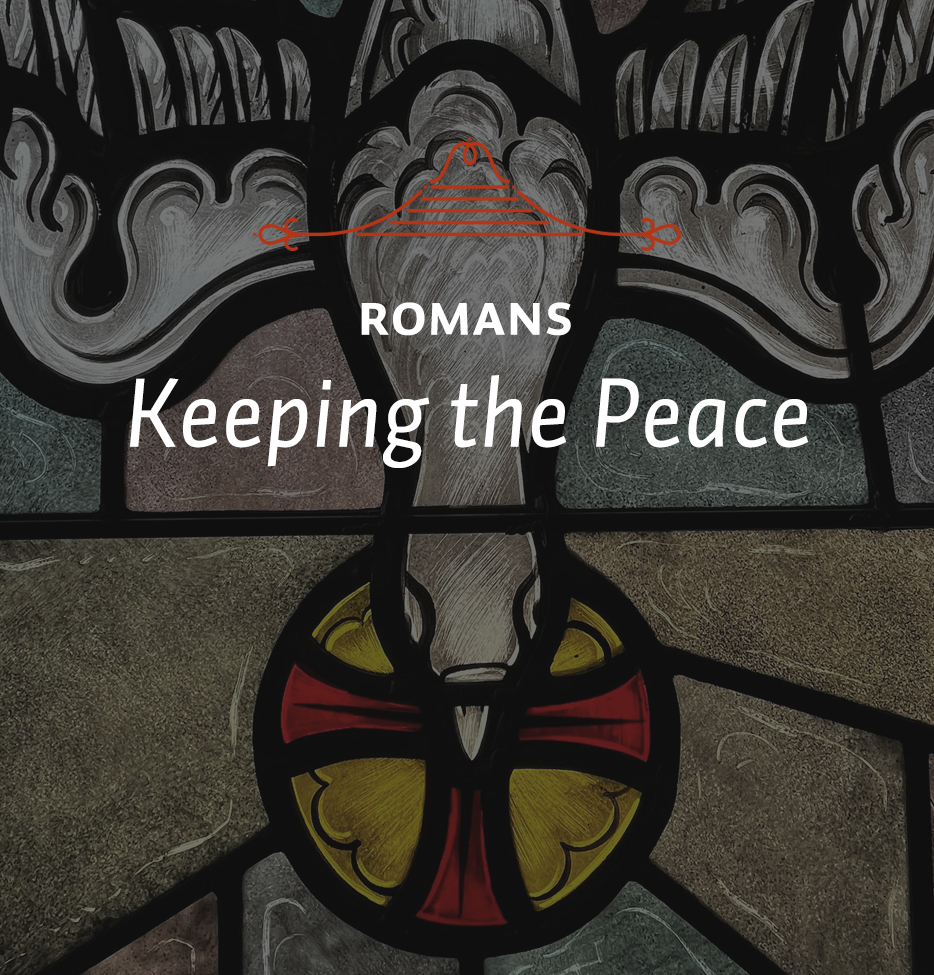As we continue our study of what it means to “live at peace with everyone,” I want to examine verse 20, which develops a contrast with the thought of taking vengeance into our own hands. “On the contrary,” it says,
If your enemy is hungry, feed him; if he is thirsty, give him something to drink. In doing this, you will heap burning coals on his head.
The thrust of this verse is clear enough. We are to do good even to those who do evil to us. This is the positive way in which we are to work toward peace or be peacemakers. Moreover, it is a third step in an obvious progression. First, we are to forebear doing evil, not retaliating for wrongs done. Second, we are to do good instead of doing evil. Third, we are to do good even to our enemies.
The difficult part of this is the last line which, as Leon Morris notes in a classic understatement, is “a metaphorical expression whose meaning is not obvious.”1 What does it mean to “heap burning coals” on our enemy’s head? And why should we want to?
Charles Hodge suggests three possible interpretations:
1. Increasing the enemy’s guilt and thus his eventual punishment. This is the oldest and probably the most widely received interpretation of the metaphor. But this is hardly the thrust of this passage, not to mention that it is also a revolting idea. It amounts to using good as a weapon. That is, “Be good to your enemy, because in the end your good will harm him more than if you were mean.” It is hard to imagine Jesus or even a nice worldly person seriously saying that.
2. Kindness will cause your enemy to become guilty and feel shame. This is not much better. To be sure, shame might lead to repentance and thus eventually to salvation. But initially it is pain itself that we would be trying to inflict, and this hardly sits well with the idea of doing good to one’s enemies or blessing those who curse us, which Paul has expounded just a few verses earlier.
3. Doing good to one’s enemy is the best means of subduing him or winning him over. Hodge calls this the simplest and natural meaning, saying, “To heap coals of fire on anyone is a punishment which no one can bear; he must yield to it. Kindness is no less effectual; the most malignant enemy cannot always withstand it. The true and Christian method, therefore, to subdue an enemy is to “overcome evil with good.”2 This is where the next verse takes us, of course. For the end of the matter is that evil is to be overcome by good, not good by evil or even evil by evil. Hodge says, “Nothing is so powerful as goodness…. Men whose minds can withstand argument, and whose hearts rebel against threats, are not proof against the persuasive influence of unfeigned love.”3
And isn’t that exactly how the Lord Jesus Christ subdued us to Himself? No one was ever reviled so much or as unjustly as Jesus. Yet, as Peter wrote,
When they hurled their insults at him, he did not retaliate; when he suffered, he made no threats. Instead, he entrusted himself to him who judges justly. He himself bore our sins in his body on the tree, so that we might die to sins and live for righteousness; by his wounds you have been healed. For you were like sheep going astray, but now you have returned to the Shepherd and Overseer of your souls (1 Peter 2:23-25).
It was by His conduct in suffering and before His enemies that Jesus won us, and it is by His death and the power of His resurrection that He enables us to live like Him.
1Leon Morris, The Epistle to the Romans (Grand Rapids, MI: Eerdmans, and Leicester, England: InterVarsity, 1988), 454.
2Charles Hodge, A Commentary on Romans (Edinburgh and Carlisle, PA: The Banner of Truth Trust, 1972), 402. Original edition 1935.
3Ibid., 404.






